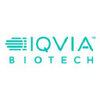Drug Safety Associate
100+ Drug Safety Associate Interview Questions and Answers

Asked in Parexel International

Q. What is MedDRA? It's current version? What is ADR/AE? Difference between them?
MedDRA is a medical terminology used for coding adverse events. Its current version is 23.1.
MedDRA stands for Medical Dictionary for Regulatory Activities
It is used for coding and classifying adverse events in clinical trials and post-marketing surveillance
The current version of MedDRA is 23.1
ADR stands for Adverse Drug Reaction, which is any harmful or unintended reaction to a drug
AE stands for Adverse Event, which is any untoward medical occurrence in a patient
The main diff...read more

Asked in Accenture

Q. What is clinical trials and phases of clinical trials?
Clinical trials are research studies that test new treatments or interventions on humans to determine their safety and efficacy.
Clinical trials are conducted in phases, each with a specific purpose and goal.
Phase 1 trials involve a small group of healthy volunteers to test safety and dosage.
Phase 2 trials involve a larger group of patients to test efficacy and side effects.
Phase 3 trials involve an even larger group of patients to confirm efficacy and monitor adverse reaction...read more
Drug Safety Associate Interview Questions and Answers for Freshers

Asked in IQVIA

Q. Abbreviations related to PV and clinical research field
Abbreviations commonly used in the Pharmacovigilance (PV) and clinical research field.
PV - Pharmacovigilance
ADR - Adverse Drug Reaction
AE - Adverse Event
SAE - Serious Adverse Event
CIOMS - Council for International Organizations of Medical Sciences
ICH - International Council for Harmonisation of Technical Requirements for Pharmaceuticals for Human Use
FDA - Food and Drug Administration
EMA - European Medicines Agency
IRB - Institutional Review Board
GCP - Good Clinical Practice
ICH...read more

Asked in IQVIA

Q. What is clinical research Phases of clinical research What are GCP and GMP Different vaccines for COVID
Clinical research is a process of testing new drugs or medical devices on humans to determine their safety and efficacy.
Clinical research involves testing new drugs or medical devices on humans to determine their safety and efficacy
It is conducted in phases, starting with small studies in healthy volunteers and progressing to larger studies in patients
The phases of clinical research are Phase I, Phase II, Phase III, and Phase IV
Good Clinical Practice (GCP) is a set of interna...read more

Asked in Wipro

Q. How Pharmacovigilance proves to be an essential asset in determining drug safety and give a brief history of pharmacovigilance .
Pharmacovigilance is essential in determining drug safety. It involves monitoring, assessing, and preventing adverse effects of drugs.
Pharmacovigilance helps in identifying and reporting adverse drug reactions (ADRs) to regulatory authorities.
It involves continuous monitoring of drugs even after they are approved and marketed.
Pharmacovigilance data is used to update drug labels and inform healthcare professionals and patients about potential risks.
It also helps in identifying...read more

Asked in Qinecsa Solutions

Q. What is the difference between product abuse and misuse?
Product abuse is intentional misuse of a product, while product misuse is unintentional or accidental use of a product.
Product abuse is a deliberate act of using a product in a way that is not intended or recommended, often for recreational purposes or to achieve a high.
Product misuse, on the other hand, is the unintentional or accidental use of a product in a way that is not recommended or intended.
Examples of product abuse include using prescription drugs recreationally, us...read more
Drug Safety Associate Jobs




Asked in Accenture

Q. What is good clinical practice in Pharmacovigilance?
Good clinical practice in Pharmacovigilance involves systematic monitoring, evaluation, and reporting of adverse drug reactions.
Adherence to regulatory guidelines and protocols
Timely and accurate reporting of adverse events
Continuous monitoring of drug safety profile
Risk management and mitigation strategies
Collaboration with healthcare professionals and regulatory authorities
Ensuring patient confidentiality and privacy
Proper documentation and record-keeping
Regular training an...read more

Asked in Wipro

Q. What do you mean by pharmacovigilance or Drug Safety?
Pharmacovigilance or Drug Safety involves monitoring, assessing, and preventing adverse effects of pharmaceutical products.
Pharmacovigilance is the science and activities related to the detection, assessment, understanding, and prevention of adverse effects or any other drug-related problems.
It involves monitoring and collecting data on the safety of drugs and medical devices after they have been approved and marketed.
The goal is to ensure patient safety by identifying and mi...read more
Share interview questions and help millions of jobseekers 🌟


Asked in Qinecsa Solutions

Q. What is the difference between an adverse event and an adverse reaction?
Adverse event refers to any undesirable medical occurrence, while reaction is a specific response to a drug or medical intervention.
Adverse event is a broader term that encompasses any negative medical occurrence, whether or not it is related to a drug or medical intervention.
Reaction specifically refers to a response to a drug or medical intervention.
Adverse events can include things like falls, infections, or other medical issues that may or may not be related to a drug or ...read more

Asked in Wipro

Q. Name some anticancer drugs and what is antibiotic resistance
Anticancer drugs include chemotherapy, targeted therapy, and immunotherapy. Antibiotic resistance is when bacteria become resistant to antibiotics.
Chemotherapy drugs: cisplatin, doxorubicin, paclitaxel
Targeted therapy drugs: imatinib, trastuzumab, rituximab
Immunotherapy drugs: pembrolizumab, nivolumab, ipilimumab
Antibiotic resistance is a growing problem due to overuse and misuse of antibiotics
It occurs when bacteria evolve to become resistant to antibiotics, making infection...read more
Asked in Mitocon Biopharma

Q. Pharmacology classification and what do u know about pharmacovigilance ?
Pharmacology classification refers to grouping of drugs based on their chemical structure, mechanism of action, and therapeutic use. Pharmacovigilance is the science of monitoring, evaluating, and preventing adverse effects of drugs.
Pharmacology classification is important for understanding the properties and effects of drugs.
There are several ways to classify drugs, including by chemical structure, mechanism of action, and therapeutic use.
Pharmacovigilance involves monitorin...read more

Asked in Accenture

Q. What are ICH and CGP guidelines?
ICH and CGP guidelines are regulatory guidelines for drug development and clinical trials.
ICH (International Council for Harmonisation of Technical Requirements for Pharmaceuticals for Human Use) guidelines provide a framework for the development, registration, and post-approval of pharmaceutical products.
CGP (Good Clinical Practice) guidelines provide a standard for the design, conduct, performance, monitoring, auditing, recording, analyses, and reporting of clinical trials....read more

Asked in Qinecsa Solutions

Q. What is the difference between clinical research and pharmacovigilance?
Clinical research involves testing new drugs or treatments on humans, while pharmacovigilance involves monitoring the safety of drugs already on the market.
Clinical research is conducted during drug development to determine safety and efficacy.
Pharmacovigilance involves monitoring the safety of drugs already on the market and identifying adverse reactions.
Clinical research is typically conducted in a controlled environment, while pharmacovigilance relies on real-world data.
Cl...read more

Asked in IQVIA

Q. What is Pharmacovigilance?
Pharmacovigilance is the science and activities related to the detection, assessment, understanding, and prevention of adverse effects or any other drug-related problems.
Pharmacovigilance involves monitoring and evaluating the safety of drugs and medical devices
It includes collecting and analyzing data on adverse drug reactions (ADRs) and other drug-related problems
Pharmacovigilance helps to identify new safety concerns and prevent harm to patients
Examples of pharmacovigilanc...read more

Asked in Syneos Health

Q. What is the difference between an Adverse Safety Report (ASR) and an Adverse Event (AE)?
ASR stands for Adverse Event from Spontaneous Reporting while AE stands for Adverse Event.
ASR is a type of adverse event that is reported spontaneously by patients or healthcare professionals.
AE is any undesirable experience associated with the use of a medical product, regardless of whether it is related to the product.
ASR is usually reported to regulatory authorities while AE can be reported to the manufacturer or regulatory authorities.
ASR is often used in pharmacovigilanc...read more

Asked in Qinecsa Solutions

Q. What are the basic requirements for a case?
The basic requirements in a case are essential elements or conditions that must be met for the case to proceed.
Clear and concise facts
Relevant evidence
Applicable laws and regulations
Proper documentation
Objective analysis
Logical reasoning
Effective communication
Timely resolution

Asked in ClinChoice

Q. What are the processes for handling calls related to Medical Information (MI), Product Quality Complaints (PQC), and Adverse Events (AE)?
Calls handled like MI, PQC, AE involve reporting and documenting adverse events, product quality complaints, and medical inquiries.
MI (Medical Inquiry) - Involves answering questions related to the safety and efficacy of a drug or medical device
PQC (Product Quality Complaint) - Involves documenting and investigating complaints about the quality of a drug or medical device
AE (Adverse Event) - Involves reporting and documenting any negative side effects or reactions experienced...read more

Asked in ClinChoice

Q. What precautions or improvements can be taken to improve data management?
Precautions and improvisations for improving data management in drug safety
Implementing standardized data entry protocols to ensure consistency and accuracy
Regularly conducting data quality checks and audits to identify and correct errors
Utilizing advanced data management software and tools for efficient data processing
Ensuring data security and confidentiality measures are in place to protect sensitive information
Providing training and ongoing support for staff involved in d...read more

Asked in Parexel International

Q. Do you have any further study plans?
Yes, I plan to pursue a Master's degree in Pharmacology.
I have always been interested in the pharmacological aspect of drug safety.
A Master's degree in Pharmacology will help me gain a deeper understanding of drug mechanisms and interactions.
I plan to continue working while pursuing my degree part-time.
I believe this will enhance my skills and knowledge as a Drug Safety Associate.

Asked in Qinecsa Solutions

Q. What are ADR and ADE?
ADR stands for Adverse Drug Reaction and ADE stands for Adverse Drug Event.
ADR refers to any harmful or unintended reaction to a medication, including side effects and allergic reactions.
ADE is a broader term that encompasses any negative event related to medication use, including errors in prescribing, administering, or monitoring.
Both ADR and ADE are important considerations in drug safety and pharmacovigilance.
Examples of ADRs include nausea, dizziness, and rash, while exa...read more

Asked in Qinecsa Solutions

Q. What is Pharmacovigilance. What is MeDraw. Explain anything about Argus.
Pharmacovigilance is the science and activities related to the detection, assessment, understanding, and prevention of adverse effects or any other drug-related problems.
Pharmacovigilance is important for ensuring the safety of drugs and protecting public health.
It involves monitoring and analyzing data from various sources, including clinical trials, spontaneous reports, and literature.
MeDraw is not a known term in pharmacovigilance.
Argus is a pharmacovigilance software deve...read more

Asked in Pharmanova

Q. What is the reporting period for all kinds of Aggregate Reports?
The reporting period for all kinds of Aggregate Reports is typically one calendar year.
The reporting period for Aggregate Reports is usually one year
This allows for a comprehensive overview of safety data over a specific timeframe
Examples include Periodic Safety Update Reports (PSURs) and Periodic Benefit-Risk Evaluation Reports (PBRERs)


Q. What is the role of excipients in drug formulation?
Excipients are inactive substances added to drug formulations to improve stability, bioavailability, taste, appearance, etc.
Excipients help in maintaining the physical and chemical properties of the drug.
They can improve drug solubility, stability, and bioavailability.
Excipients can also enhance the appearance, taste, and ease of administration of the drug.
Examples of excipients include fillers, binders, disintegrants, lubricants, and coloring agents.

Asked in ClinChoice

Q. What are the different methods of communication you use, such as mailing and calls?
Communication in drug safety involves emails, phone calls, and meetings to ensure timely and accurate information exchange.
Emails are commonly used for formal communication and documentation of important information.
Phone calls are used for more immediate and urgent communication, such as discussing adverse events or safety concerns.
Meetings are held to facilitate discussions, decision-making, and collaboration among team members.
Effective communication is essential in drug s...read more

Asked in IQVIA

Q. Pharmacology drug classification with Common ADRs
Pharmacology drug classification with common ADRs
Pharmacology drugs can be classified into various categories such as analgesics, antibiotics, antihypertensives, etc.
Common ADRs include nausea, vomiting, diarrhea, dizziness, headache, and allergic reactions.
Examples of drugs and their ADRs include aspirin (GI bleeding), penicillin (allergic reactions), and lisinopril (cough).

Asked in Parexel International

Q. Classification of drugs like NSAIDS, drugs for Arthritis, drugs for Malaria
Classification of drugs includes NSAIDs, arthritis medications, and antimalarials, each serving distinct therapeutic purposes.
NSAIDs (Non-Steroidal Anti-Inflammatory Drugs): Used to reduce inflammation and relieve pain. Examples: Ibuprofen, Naproxen.
Drugs for Arthritis: Target inflammation and pain in joints. Examples: Methotrexate, Sulfasalazine.
Drugs for Malaria: Antimalarial medications used to treat or prevent malaria. Examples: Chloroquine, Artemisinin.

Asked in ClinChoice

Q. What safety precautions are followed during the documentation process?
Safety precautions during documentation process are crucial for accuracy and compliance.
Ensure confidentiality of patient information by following HIPAA guidelines
Double check data entry for accuracy to prevent errors
Use secure electronic systems for storing and sharing documentation
Regularly update and maintain documentation to reflect current information
Train staff on proper documentation procedures to ensure consistency

Asked in IQVIA Biotech

Q. What are the different types of clinical trials?
There are four types of clinical trials: Phase I, Phase II, Phase III, and Phase IV.
Phase I trials test the safety and dosage of a new drug on a small group of healthy volunteers.
Phase II trials test the effectiveness and side effects of a new drug on a larger group of patients with the targeted disease.
Phase III trials compare the new drug to the current standard treatment on a large group of patients to determine its safety and effectiveness.
Phase IV trials are conducted af...read more

Asked in Wipro

Q. What are the major health authorities in the world?
Health authorities are organizations responsible for regulating and overseeing healthcare practices within a specific region or country.
Health authorities set guidelines and regulations for healthcare providers to ensure patient safety and quality of care.
They monitor and investigate public health issues, outbreaks, and epidemics.
Examples include the Food and Drug Administration (FDA) in the United States, the European Medicines Agency (EMA) in Europe, and the World Health Or...read more

Asked in ClinChoice

Q. What constitutes active participation during an audit?
Active participation during audit includes preparing for the audit, attending audit meetings, providing requested information, and addressing any findings or concerns.
Prepare for the audit by reviewing relevant documents and processes
Attend audit meetings and actively participate by answering questions and providing explanations
Provide requested information promptly and accurately
Address any findings or concerns raised during the audit by developing corrective action plans
Fol...read more
Interview Questions of Similar Designations
Interview Experiences of Popular Companies






Calculate your in-hand salary
Confused about how your in-hand salary is calculated? Enter your annual salary (CTC) and get your in-hand salary


Reviews
Interviews
Salaries
Users










